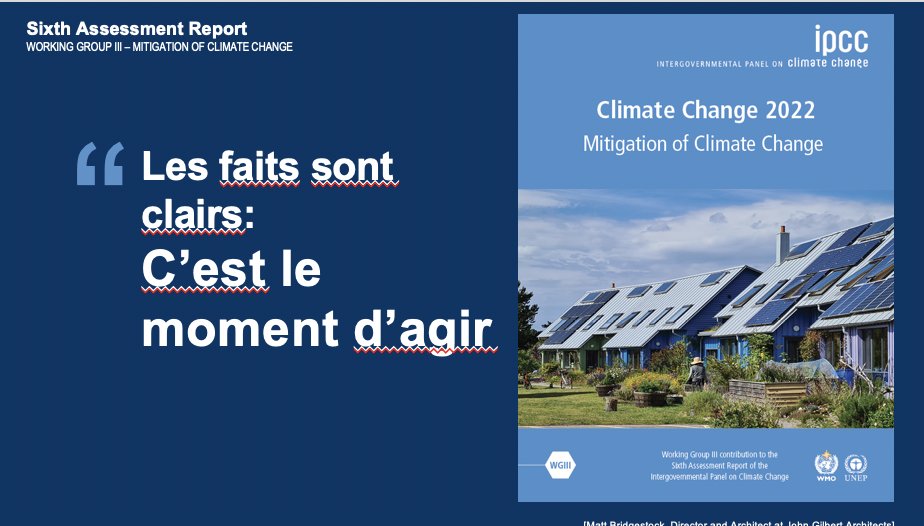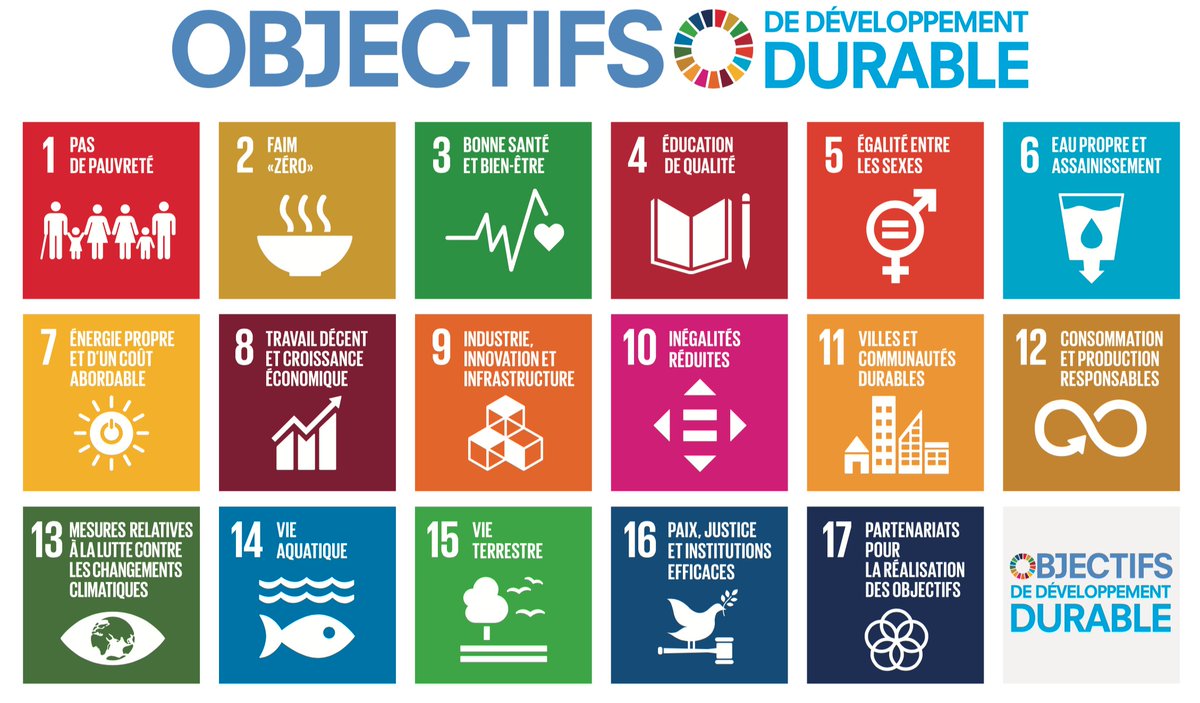Dr Valerie Masson-Delmotte on the WGIII report Part 2 Know your nomenclature
Thomas Kuhn wrote that scientists could discuss their understanding because they agreed on the meaning of terms. This goes back centuries to Lavoisier who, while creating chemical nomenclature pointed out that science consisted of
The impossibility of separating the nomenclature of a science from the science itself, is owing to this, that every branch of physical science must consist of three things; the series of facts which are the objects of the science, the ideas which represent these facts, and the words by which these ideas are expressed. Like three impressions of the same seal, the word ought to produce the idea, and the idea to be a picture of the fact. And, as ideas are preserved and communicated by means of words, it necessarily follows that we cannot improve the language of any science without at the same time improving the science itself; neither can we, on the other hand, improve a science, without improving the language or nomenclature which belongs to it. However certain the facts of any science may be, and, however just the ideas we may have formed of these facts, we can only communicate false impressions to others, while we want words by which these may be properly expressed.
Those who have been here to Rabett Run (and gone, Eli accepts the blame) know that denial of science is rooted in distortions of definitions.
Dr. Masson Delmotte start her analysis of WGIII Annex I of the report, by looking at some of the terms in the glossary, to establish what is being discussed. There are many more, and anybody looking at the WGIII AR6 would do well to look for them before engaging on any topic

For group III (attenuation), the glossary is here: ipcc.ch/report/ar6/wg3/
Some new features!
🧵

Reducing greenhouse gas emissions by avoiding the use of an emissions-producing service entirely, shifting to the lowest-emission mode of providing the service, and/or improving the technologies and systems for providing the service in ways that reduce emissions.
Measure of the exclusive total amount of emissions of carbon dioxide (CO2) that is directly and indirectly caused by an activity or is accumulated over the lifecycle stages of a product' (Wiedmann and Minx 2008).
Household carbon footprint The carbon footprint of an individual household, inclusive of the direct and indirect carbon dioxide (CO2) emissions associated with home energy use, transportation, food provision, and consumption of other goods and services associated with household expenditures.
Circular economy A system characterized by minimal inputs and operational losses of materials and energy through intense reduction, reuse, recycling and recovery activities.Ten strategies for circularity: refuse, rethink, reduce, reuse, repair, recondition, remanufacture, reuse, recycle, recover.
There is no agreed definition of climate finance. The term 'climate finance' is applied to the financial resources devoted to addressing climate change by all public and private actors from global to local scales, including international financial flows to developing countries to assist them in addressing climate change. Climate finance aims to reduce net greenhouse gas emissions and/or to enhance adaptation and increase resilience to the impacts of current and projected climate change. Finance can come from private and public sources, channelled by various intermediaries, and is delivered by a range of instruments, including grants, concessional and non-concessional debt, and internal budget reallocations.
A form of economic evaluation that compares the cost of different mitigation strategies developed to achieve a specific objective, e.g. emissions reduction target, global temperature stabilization target.
A set of material conditions essential to human well-being, including nutrition, housing, essential services, medical care, transport, information, education and public space.
Decoupling (in relation to climate change) is where economic growth is no longer strongly associated with another relevant indicator such as greenhouse gas emissions. Relative decoupling is where both grow but the other indicators grow more slowly than the economy. Absolute decoupling is where there is economic growth but there is a decline in the other indicator.
Disciplinary approaches use the term in different ways. In economics, demand by a consumer is willingness and ability to purchase in a market place. However, the motivation for purchase may vary and can include economic utility, welfare, Decent standard of living (DSL), or for the good/services.
Demand-side measures Policies and programmes for influencing the demand for goods and/or services. In the energy sector, demand-side mitigation measures aim at reducing the amount of greenhouse gas emissions emitted per unit of energy service used.
Supply-side measures Policies and programmes for influencing how a certain demand for goods and/or services is met. In the energy sector, supply-side mitigation measures aim at reducing the amount of greenhouse gas emissions emitted per unit of energy service produced.
Access to clean, reliable and economical energy services for cooking, heating, lighting or communications, and for production purposes
Lack of sufficient choice for access to adequate, affordable, reliable, high quality, safe and environmentally friendly energy services to support economic and human development.
Fuel poverty:
Situation in which a household is unable to ensure a certain level of consumption of domestic energy services (in particular for heating) or suffers disproportionate costs to meet these needs.
The release of greenhouse gases that occur during the exploration, processing and delivery of fossil fuels to the point of final use. This excludes greenhouse gas emissions from fuel combustion for the production of useful heat or power. It encompasses venting, flaring, and leaks.
A set of principles, processes and practices that aim to ensure that no people, workers, places, sectors, countries or regions are left behind in the transition from a high-carbon to a low-carbon economy. It stresses the need for targeted and proactive measures from governments, agencies, and authorities to ensure that any negative social, environmental or economic impacts of economy-wide transitions are minimised, whilst benefits are maximised for those disproportionally affected. Key principles of just transitions include: respect and dignity for vulnerable groups; fairness in energy access and use, social dialogue and democratic consultation with relevant stakeholders; the creation of decent jobs; social protection; and rights at work. Just transitions could include fairness in energy, land use and climate planning and decision-making processes; economic diversification based on low-carbon investments; realistic training/retraining programs that lead to decent work; gender specific policies that promote equitable outcomes; the fostering of international cooperation and coordinated multilateral actions; and the eradication of poverty. Lastly, just transitions may embody the redressing of past harms and perceived injustices. (ILO 2015; UNFCCC 2016)
Ability of developing countries to skip several stages of technological development and move directly to cutting-edge clean technologies.
Replacement of one material (including an energy carrier used as a feedstock) by another, due to scarcity, price, technological change, or because of lower environmental impacts or greenhouse gas emissions.
Offset: climate policy compensation
The reduction, avoidance or removal of a unit of greenhouse gas (GHG) emissions by one entity, purchased by another entity to counterbalance a unit of GHG emissions by that other entity. Offsets are commonly subject to rules and environmental integrity criteria intended to ensure that offsets achieve their stated mitigation outcome. Relevant criteria include, but are not limited to, the avoidance of double counting and leakage, use of appropriate baselines, additionality, and permanence or measures to address impermanence. See also Greenhouse gas emission metric and Carbon neutrality
Organic farming
An agricultural production system that aims to utilise natural processes and cycles to limit off-farm and notably synthetic inputs, while also aiming to enhance agroecosystems and society. Organic farming is often legally defined and governed by standards, typically guided by principles outlined by the International Federation of Organic Agriculture Movements (IFOAM - Organics International). (IFOAM-Organics International 2014
Consumer who also produces energy and injects it into the system, making it an active agent in the system and in the energy market.
Phenomena whereby the reduction in energy consumption or emissions (relative to a baseline) associated with the implementation of mitigation measures in a jurisdiction is offset to some degree through induced changes in consumption, production, and prices within the same jurisdiction. The rebound effect is most typically ascribed to technological energy efficiency improvements
A universally agreed definition of this relatively new farming approach has yet to be established, but regenerative agriculture broadly refers to the implementation of varying combinations of agricultural management practices, to ensure the continued restoration and enhancement of soil health, biodiversity and ecosystem functioning, in conjunction with profitable agricultural production.
Any form of energy that is replenished through natural processes at a rate equal to or greater than its rate of use.









